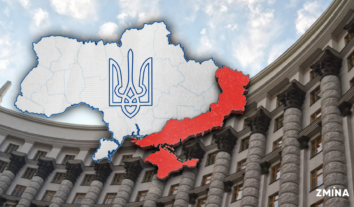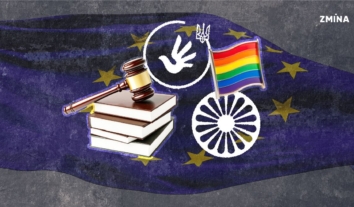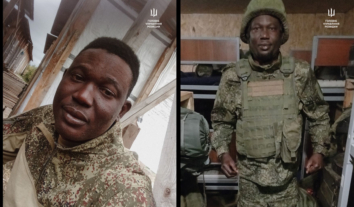“Inclusion is about everyone”: Tania Kasian on the challenges and opportunities for Ukrainian businesses in implementing non-discriminatory practices
Non-discriminatory practices are becoming increasingly important for Ukrainian businesses, especially in times of war and social change. But how do companies implement these initiatives? What challenges do they face, and how do these changes affect their reputation and competitiveness?
ZMINA spoke about this with Tania Kasian, Executive Director at NGO Fulcrum UA, consultant and trainer on gender equality, diversity and inclusion (DEI). Read more about the current state of non-discriminatory practices in business, the role of the Corporate Equality Index, the challenges companies face during the war, and the importance of measures that promote inclusion in the interview.
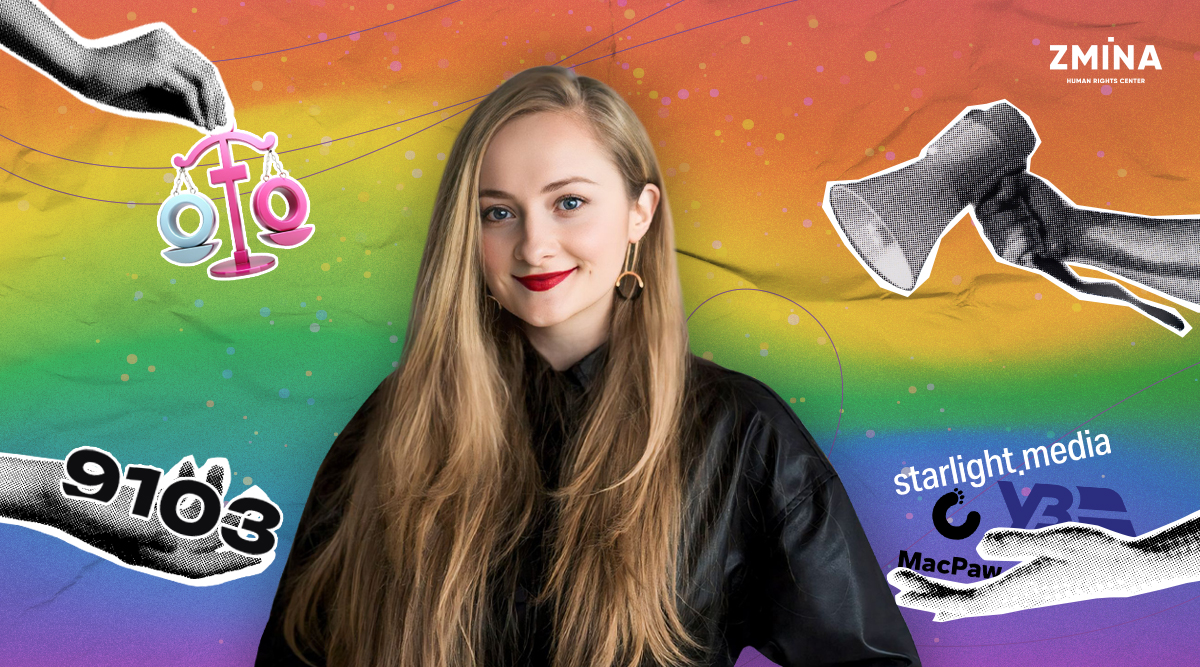
How do you assess the current state of implementation of non-discriminatory practices in business in Ukraine – how widespread and timely is it? What changes have been observed recently?
I think we more or less started talking about this back in 2014. This was due to the arrival of people who had moved from the temporarily occupied territories or the war zone. The government and business started thinking about how to adapt and reintegrate them. Back then, you could win various grants to set up your own businesses. I myself did a series of interviews, for example, with women who moved from Donetsk and Luhansk regions to Kyiv and opened some small businesses.
So people started talking about non-discrimination in business back then. Sometimes it was because of an urgent need – the emergence of a new vulnerable group of people with IDP status, sometimes because of an understanding of the trendiness of the topic, and sometimes because of the obligations of the head office located in Europe or the United States. When we talk about inclusive businesses, we need to understand that there are Ukrainian companies and branches of international companies.
For example, five years ago, I came to a bank to engage them in our Corporate Equality Index. At that time, we focused on three groups: women, LGBT people and people with disabilities (and a year later we added all the characteristics protected by Ukrainian law).
So, we spoke with representatives of the bank, and they confirmed that everything was fine with the situation of women: there are changes in the board, women are moving up the career ladder. As for people with disabilities, there was still work to be done, and it often only concerned physical accessibility – the availability of wheelchair ramps, accessible toilets, etc. But when I asked about LGBT people, I heard: “We don’t have LGBT people”. In other words, in their opinion, there are no LGBT people among the thousands of employees and clients.
Five years later, they came back for me to give them a training on inclusive language. But inclusive language is not just about people with disabilities. Inclusion is about everyone. Often, when we talk about inclusion, we only mean people with disabilities or veterans, but this concept is much broader.
Inclusion originated 70 years ago in the United States in the context of the racial issue. Later, the issue of women’s rights was added to it, then people with disabilities and various disorders, and in the 1980s, people started talking about LGBT rights. In Ukraine, we mostly talk about people with disabilities, veterans and internally displaced persons. It’s understandable because of the war, but other groups are neglected.
Now the number of people with disabilities is growing – during the full-scale war, this number increased by 300,000, and now there are 3 million of them. But there is little talk about LGBT people, even though a gay person can be a veteran and have a disability. This is the principle of intersectionality – when several characteristics can be combined in one person – and Fulcrum UA is trying to talk about inclusion through this principle.
However, so far, few businesses are ready to talk about LGBT issues. Placing a rainbow logo during Pride Month is good, but it’s not enough. There must be some kind of internal strategy: how the company will train employees, how it will conduct interviews, how it will respond to cases of homophobia. One company once asked me whether to fire an employee for a homophobic incident. This is not for me to decide, but you as a business should have a policy with a mechanism for responding to such incidents, and your employees should be familiar with this policy so that such a decision does not come as a very unpleasant surprise to them.
You said that one of the banks believed that there were no LGBTIQ people among their staff and clients. I assume that this may be due to the fact that employees were simply not interested in this issue, and obviously, they did not conduct any surveys. By the way, sometimes when I applied for some international programmes or projects, I saw that you could choose your belonging to the so-called “vulnerable categories of the population”, including LGBTIQ people.
It is important to understand the purpose of these questionnaires. We need to know why this data is being collected. For example, if we, Fulcrum UA, hold an event or project, we need to understand how effective we are, and so we collect data: who attended – women, men, non-binary people, what age, from which cities, whether they have a disability status. This helps us to adapt the event and services to the needs of these groups: whether they can get there, whether there is accessibility for people with disabilities, whether they have internet access, etc.
If we are talking about business, then, for example, during an interview, HR has no right to ask about a person’s disability directly, as this could be a manifestation of discrimination and a violation of the law. However, the employer can create special conditions for certain categories of people, for example, provide housing for internally displaced persons or organise a nursery for employees with small children. And in this case, there is nothing wrong with collecting data on which group the employees belong to. Another question is how to do it. Alternatively, you can conduct an anonymous survey.
If it is a large company, it is done by the HR department, if it is a smaller company, it is done by the person in charge of human resources. The main thing is to do it with a clear purpose and without discrimination or excessive emphasis on personal characteristics of employees.

Is it noticeable that the Corporate Equality Index influences the attitude of companies towards equality and inclusion? Are there any examples of companies that have begun to implement such practices more actively since the launch of the Index?
The award in the Corporate Equality Index is a kind of quality mark for a company, because they are assessed not by the media where you can buy advertising, but by a non-governmental organisation that has been working on this topic for more than 10 years. At the same time, companies cannot pay to be included in the ranking – everything is based on an independent assessment.
Companies fill in the questionnaires themselves, and we see the results. We have recently launched a new questionnaire, and over the next month and a half we will be collecting data. We can already see that the number of companies participating is increasing. The last Index we did was in 2021, and it asked, for example, what companies did to support their employees during COVID-19. We interviewed both companies and their employees, and were preparing an award ceremony to take place on February 24, 2022, but the war changed the plans.
Over the past two years, companies have done a lot for their employees. Some have introduced programmes for reintegrating veterans and supporting mental health, others have created spaces and started providing inclusive services, and some have even opened DEI leadership positions. It is clear that businesses are interested in this and want to develop in this direction. For example, as part of another project, Point of Care, we have been helping businesses develop inclusive psychological support for their teams with a focus on different groups of people for the past year and a half, and the interest of companies is only growing as the demand grows. I think the topic of mental health is now with us for a long time.
As for the Index, companies often ask how to get into its ranking, because in the end we form the top best employers in Ukraine. However, we emphasise that the Index is not only about the ranking, but also about a roadmap, so that companies can see what they still need to work on.
As for the Index, we have already held a conference where we presented a new questionnaire and talked about what businesses are doing in the area of equality and inclusion. Although the event took place in the summer, when businesses usually go on holiday, the hall was full. We are currently at the stage of collecting data, and in parallel, we will be surveying consumers to understand how important it is for them that the business they buy services from or consider as an employer supports human rights and inclusion.
Some companies, such as Ukrzaliznytsia and MacPaw, really show systematic work in the field of inclusion. Ukrzaliznytsia is introducing women’s compartments, family carriages, working on accessibility issues for veterans, and has even created a support programme at railway stations where people are helped by “railway angels”. MacPaw, in turn, actively supports LGBT employees and implements strategies to support veterans and people with disabilities.
Companies are becoming more and more conscious and serious about promoting equality and inclusion. These are no longer just words or image campaigns, but actual steps that change the situation for the better.
Have there been any additional challenges or sensitivities in assessing businesses during a full-scale war?
Yes, you know what’s difficult? There are great companies, but their head offices have not left the Russian market – in the first months of the full-scale war, we made posts about these companies. This is where the problem arises. I remember how we talked to Auchan Ukraine, which has done a lot to employ people with disabilities, including hearing impairments. I asked my friends who work in the company: “What’s going on? When will the company leave Russia?”. And they told me: “Look, our head office in France is not responding. They explain it by saying that these are essential goods – food, hygiene”. And closing Auchan in Ukraine means losing jobs for Ukrainians. So what should we do?
And Auchan is not the only one. And these companies teach their staff the principles of inclusion at various levels, do all sorts of CSR projects, and provide humanitarian aid. But this trail of a global company’s presence in Russia remains, and you can’t get away from it.
We do not forbid such companies from participating in the Corporate Equality Index, but we will make a note that the company has not left the Russian market.
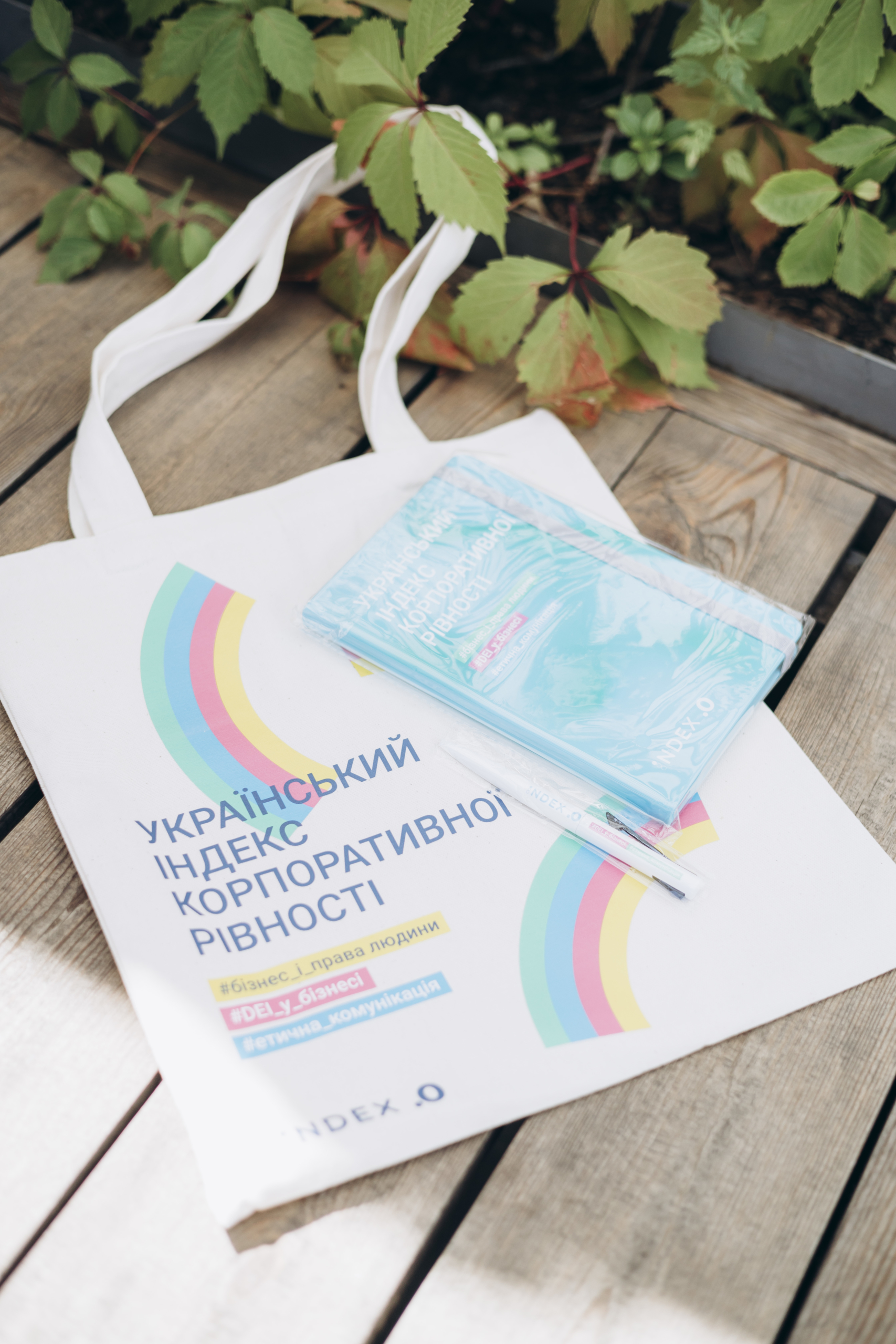
How does the implementation of non-discrimination policies in companies affect their competitiveness and reputation?
When we do our research, we will see what consumers say. But from what I see now, the way the war has affected Ukrainians is that the level of tolerance has increased. For example, NDI’s research shows that 56% of Ukrainians support equal rights for LGBT people in the form of civil partnerships. Previously, this figure was about 30%, and now it is more than half.
I was interested to see what was happening. For example, we have videos on our YouTube channel with stories of LGBT soldiers, including Viktor Pylypenko and Yaryna Chornohuz, people who are now well known. I deliberately watched the comments under those videos after the full-scale invasion: people often just started to thank us. And this is a big change. The military makes coming out, and this is the largest group among LGBT people who do it. No other profession has such precedents.
Vitia and I talked about this, and my logic is that people who risk their lives want to do it with an open face. Vitia says that for them it is also an element of activism. There were a lot of coming out stories on the page of their NGO – I counted almost 50, but that was a year ago. Now there are much more. This also affects the level of tolerance of Ukrainians towards LGBT people in general. People see that there are both heterosexual and LGBT people among the defenders at the front.
And a logical question arises: “Why not give them civil partnerships? They fight the same way, risk their lives the same way, but only some are protected by law, while others are not. It’s not fair”. And remember the petition about marriage! It had two sentences, and people voted on it. And then there was a petition about civil partnerships when draft law No. 9103 was registered. This petition gained 25,000 signatures in a couple of weeks. It took longer for opponents to collect their signatures.
And look at Pride Month. Before the full-scale war, there were not as many rainbow logos as there were last year and this year. Many companies supported it, even if not all of them implement inclusion policies. For example, I always say that the logo should be put at the end, after everything has been done within the company. Like Starlight Media: first, they adopted an inclusion strategy, then trained their employees, and then made a public statement. And now they are also helping us to create social videos to support partnerships.
But the rainbow logo is still cool and it is a signal to LGBT people that this company supports equal rights. This is especially in contrast to when Soft.ua posted a vacancy with a discriminatory description that they do not hire LGBT people.
This year, even more companies supported, even government agencies such as the Ministry of Foreign Affairs, the Ministry of Culture and Information Policy. Ukrposhta also supported. Huge companies such as Kyivstar, Lifecell, Vodafone, Comfy, etc.
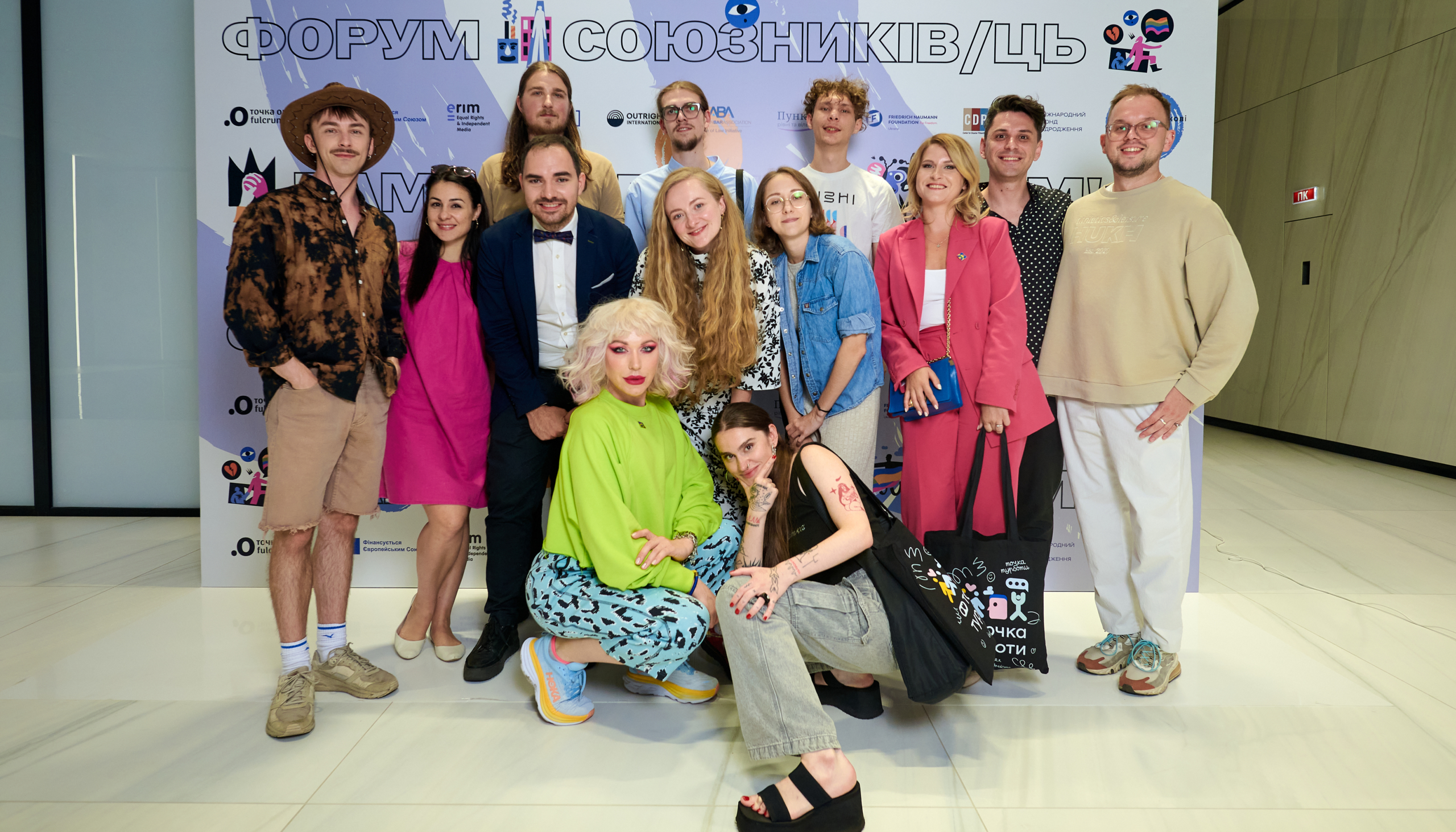
The full-scale war has changed the situation a lot. According to research, most people have become more open to accepting equal rights. And this should be taken into account, even if people’s deputies do not yet pay attention to this in the laws. But business does. Even though they sometimes say: “Let’s talk about veterans and people with disabilities now, and then we’ll talk about LGBT people some other time”. But that doesn’t work with me. And I still tell them about the rights of LGBT people, because, sorry, but inclusion is for everyone and about everyone.
Thank you for such an informative and important conversation! In conclusion, could you give us one universal piece of advice: where to start for businesses that want to implement inclusive, non-discriminatory practices in their companies?
A lot depends on the leader. If there is a person in the company, for example, in a middle management position or just an employee who cares, you need to go to the leader and explain why it is necessary to implement inclusive practices. Without the support of the leader, without him or her leading by example, nothing will happen.
This was the case in my previous company, where I used to work. The leader talked about anti-discrimination, LGBT rights, gender equality, but when conflicts arose in the newsroom and I was accused of “promoting Sodom and Gomorrah”, no one defended me. And at the same time, there were several homosexuals in our team who did not make coming out precisely because of this attitude. If the leader had a clear position that such statements are unacceptable, that microaggressions, jokes or devaluation of people are not acceptable, the situation would have been different.
We need a clear mechanism of actions and consequences. You can’t just fire someone for making homophobic remarks. It should be stated that if someone says something like that, they will be fined or fired. This is the case with the publishing house, where the chief designer was fired because of the situation with textbooks without Crimea.
If there is no leader’s will to make changes and support inclusion, everything will fall apart. In my team, in Fulcrum, it is the same. I would like to believe that everyone speaks inclusively, but sometimes I hear some incorrect jokes and say: “What is this?”. I don’t let it go by if I hear something microaggressive against any group of people. Because then what is the point of my work as a director? A leader has to control it. Whether all leaders want to do this is another question.

Most businesses think in terms of numbers and profits. When I am asked to convince top managers that this is necessary, we make a separate presentation with research that shows that diversity and inclusion increase productivity. The more diverse the team, the greater the variety of ideas and solutions, which leads to the development of better services and products and, consequently, to increased profits.
Empathy does not always work on businessmen. But there are numbers and studies that say that if you don’t implement inclusive practices, you will fall behind. Also, think about the new generation that grows up watching Netflix series. They will not work in companies where there are homophobic, racist or ageist statements. If you want to stay competitive and attract young employees, implement the principles of inclusion.
The material was created with the support of Gender Stream in cooperation with the Center for Disaster Philanthropy. The views expressed within the project do not necessarily reflect the views of these organisations.


